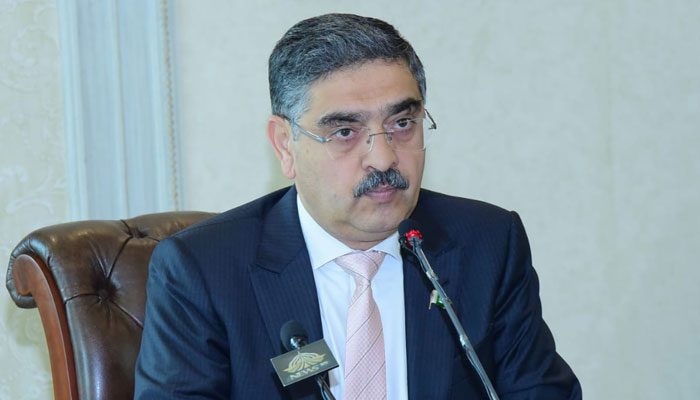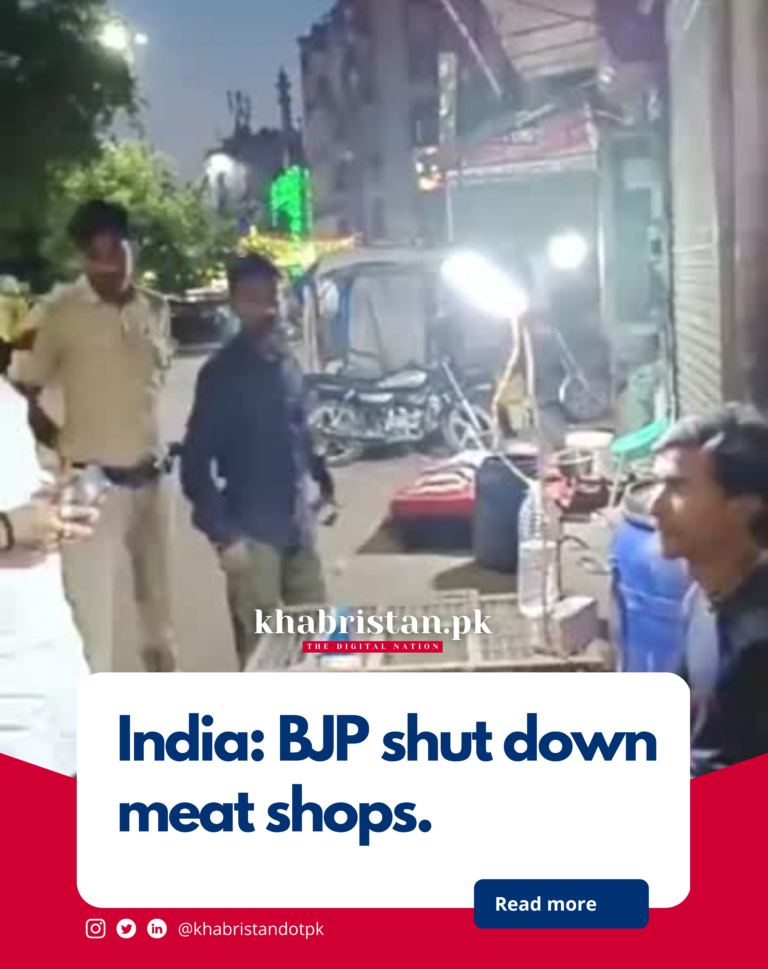Caretaker Prime Minister Anwaarul Haq Kakar, on Thursday, dispelled any notion that the decision for Pakistan Muslim League-Nawaz (PML-N) leader Nawaz Sharif’s return to Pakistan was part of an arrangement with the interim government.

This statement coincided with the anticipation of PML-N as they prepare to welcome their leader on October 21 after his four-year exile in London. In several cities across Pakistan’s most populous Punjab province, large posters of Nawaz Sharif have been displayed on streets, and rallies are being organized to announce his long-awaited comeback.
PML-N intends to gather a massive crowd of one million people at Lahore’s historic Iqbal Park on October 21, a stronghold of the ex-premier’s party. As PML-N faces growing public discontent over its management of the economy during a 16-month coalition government that ended in August, they are hopeful that Nawaz can lead them once more in the lead-up to the general elections scheduled for the last week of January.
In an interview with a private digital media platform, Kakar emphasized that the caretaker government holds no favoritism towards PML-N or any other political party, making it implausible for the caretaker government to engage in such an arrangement. The prime minister addressed a question regarding the return of the PML-N chief, who recently flew from London to Saudi Arabia.
Kakar pointed out that Nawaz had left the country in accordance with a court decision “under the watch of Imran Khan’s government, not the caretaker setup.” Nevertheless, he noted that if the PML-N leader returns to engage in politics, he may encounter legal obstacles. He emphasized that the resolution of these legal matters would be found through legal means, applicable to leaders like Imran Khan, Asif Ali Zardari, Nawaz Sharif, or others.
Kakar acknowledged that Pakistan is experiencing the formation of “regimental camps,” with the nation becoming a battleground for political positions. He rejected any comparison of the caretaker setup to the 1990s ‘Kakar formula,’ where both the prime minister and president were forced to step down to make way for fresh elections, stating that such a comparison is out of context since the current situation is marked by a constitutional continuation agreed upon by the leaders of the house and the opposition without interference from any institution.
Regarding the upcoming general elections, Kakar mentioned that necessary security and administrative arrangements were being put in place, with the caretaker government working in collaboration with the Election Commission of Pakistan to finalize the required measures.
Kakar reiterated that the expulsion of Afghan refugees would only apply to unregistered foreign nationals and illegal aliens, with the aim of regulating their movement through proper processes.
In discussions about Pakistan-India relations, Kakar pointed out that the radicalized mindset of the ruling Indian party and the Kashmir dispute are the main obstacles to maintaining good ties. He expressed the need for improvement but indicated that, realistically, such a possibility does not currently exist.
Regarding the recognition of Israel, Kakar stated that there were no ongoing deliberations, as Pakistan considers Israel an “oppressor” and stands in support of Palestinian rights.
Kakar noted that Pakistan has witnessed a reversal of the dollar’s value and a consistent decrease of about Rs40-45, marking progress toward economic stability. He stressed the importance of foreign investment through the Special Investment Facilitation Council (SFIC) and clarified that the army’s role is a temporary arrangement for facilitation, not a takeover of the mining sector.
Kakar emphasized the necessity of building the capacity of civil institutions to ensure economic viability. In Balochistan, he identified security, governance, resource scarcity, and mismanagement as primary challenges, highlighting the presence of numerous ghost schools and health units revealed during an apex committee meeting in Quetta. He concluded that mismanagement had enriched a few individuals while leaving the rest of the population, including common Balochs, Pashtuns, and Hazaras, deprived.








Leave a Comment